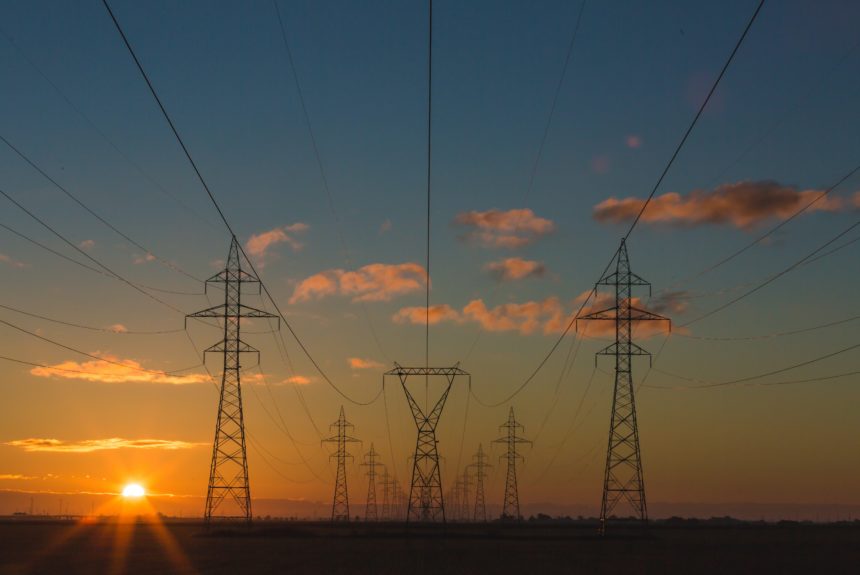By Patrick Sullivan
Away from D.C., out here in the hinterlands, people between the margins are tired. Tired from 2020, tired of the fighting, and tired of politicians. Opportunity and growth are what people hunger for. Few care who lands the latest jab to the political opposition. As the Biden Administration has quickly taken extreme actions against U.S. energy development, opportunity for growth seems to be waning.
Always, perhaps until now, views nationally on energy policy have seemed to be far more influenced by region and demographics than by political party. In Mississippi, energy has never been a matter of partisan politics. Regardless of party, policymakers and regulators here rightfully see energy primarily as a means to quality of life. They see it in terms of providing vital needs from household budgets, and they see it as a high-value economic sector providing great-paying jobs to their constituents working for electric power companies, natural gas providers, pipeline companies or in the oil and gas field.
There are lessons to be learned in the states. The best solutions have proven to come from innovation and risk-taking in the business community, not from heavy-handed federal or state regulation. Absurd proposals like the Green New Deal or the so-called Clean Power Plan are economically ruinous and based on the fallacy that large sectors of our economy must be shut down to achieve environmental gains.
There are fundamental things we should all agree on, like emissions reductions are good, energy sector jobs are great and high energy costs are bad. Judging from week one, the game plan in the Biden Administration seems to be taking action on items that are chiefly symbolic and pleasing to a certain crowd but ineffective – and even counterproductive – towards environmental gains.
Policies should pass the fundamentals test of measurably reducing emissions while not harming individual livelihoods or the economy as a whole. We know this can be done because in states across the U.S., like Mississippi, this is exactly what is happening. The Paris Climate Accord is not the Holy Grail of climate policy. In fact, an objective overview reveals it to be a non-binding statement of intentions, like my 10-year-old promising me he won’t misbehave again.
The revocation of the Keystone XL pipeline permit immediately caused thousands of Americans to lose their jobs. The end result is not a reduction in Canadian oil production but an exponential increase in emissions through rail and truck transportation. These actions are not solutions but acts of self-defeating pandering intended to appease an aggressive crowd interested not so much in actually reducing emissions but in hurting the oil and gas business.
In the real world, states are leading the way. Over the last decade, Mississippi’s economy has grown while emissions have stayed flat. What a radical idea it would be to embrace the industries that provide good-paying jobs in our communities while also encouraging more of the activities known to effectively help reduce emissions. That’s exactly what’s happening here in Mississippi.
This has been done with new investment in solar with some 220 megawatts in operation, 200 megawatts under construction and several hundred megawatts more on the drawing board with hungry investors.
Mississippi’s lone nuclear reactor happens to be the largest single reactor in the U.S. and recently had its life extended for another 25 years. It is currently undergoing upgrades to prepare for production through 2044. Considering what nuclear offers to lower emissions solutions and the fact that the existing fleet has a finite life, why would the rest of the world take U.S. climate policy seriously when we don’t talk about a new generation of nuclear power? The same goes for hydroelectric power. While wind and solar are nice emissions free generation sources, they simply cannot replace nuclear and hydro.
Years ago, oil companies developed CO2 pipelines in Mississippi to transport mined geologic CO2 to old oil fields to re-pressurize the fields and produce more oil, known as enhanced oil recovery. This practice still takes place and is a key part of Mississippi’s energy economy. Looking ahead, this pipeline network can play a leading role if and when power producers or petrochemical facilities begin to capture CO2 for permanent sequestration. The groundwork for this type of program is being laid now in Mississippi and other states like Louisiana and Texas.
These are real actions where real money has been spent. Just these few examples account for billions of dollars in private investment in a small state that accounts for only 1% of the U.S. population. Importantly, this happened without heavy handed regulation. The leaders and policymakers here understand the value the full energy sector brings to our communities, the luxury we have with access to affordable energy, and the many families who depend on the jobs for a good income.
For sake of opportunity and growth, let’s hope the Biden Administration can see the wisdom in looking to the states.
Patrick Sullivan is President of Mississippi Energy Institute.
The views and opinions expressed are those of the author’s and do not necessarily reflect the official policy or position of C3.
